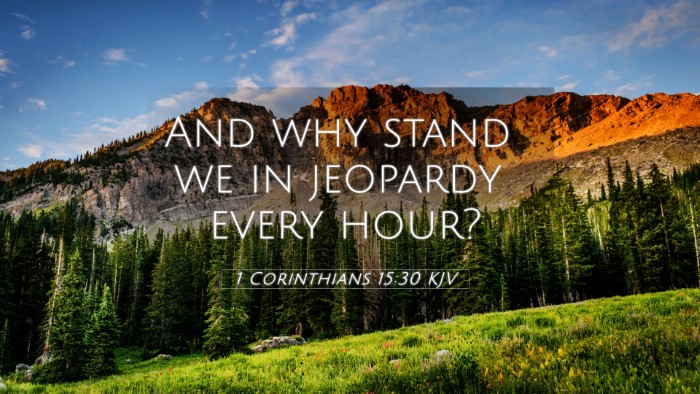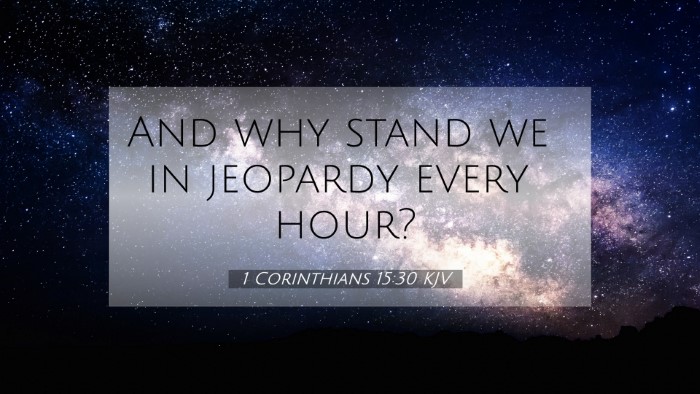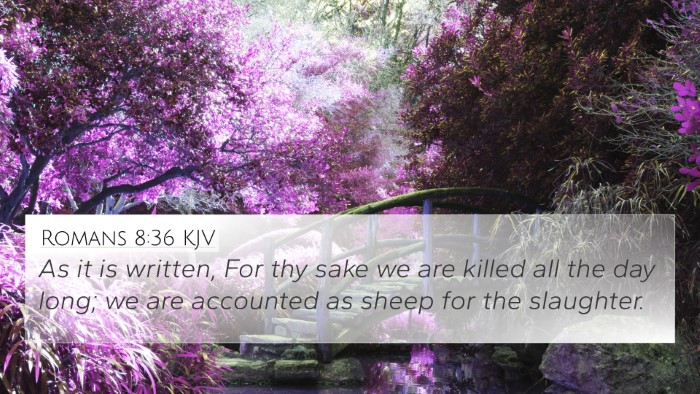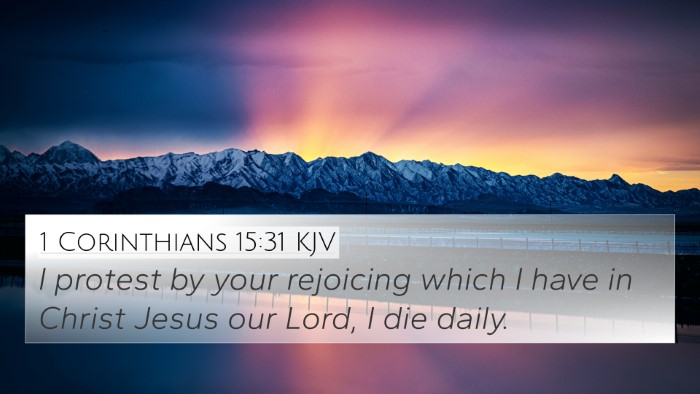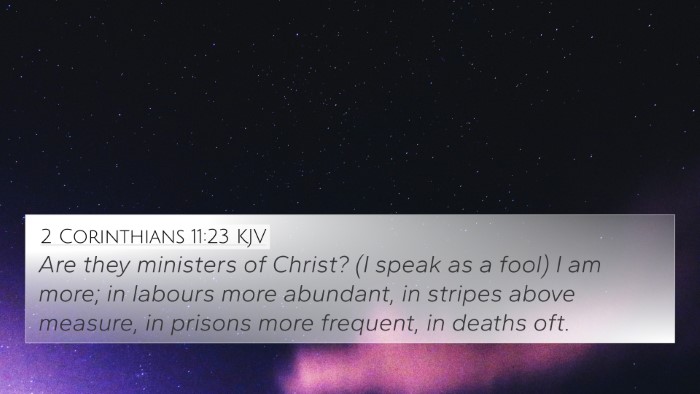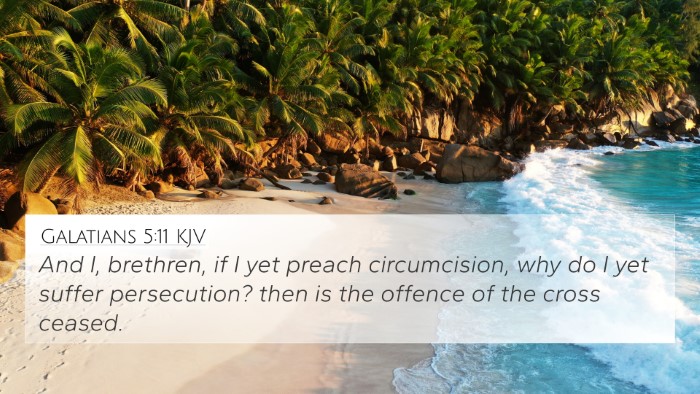Understanding 1 Corinthians 15:30
Bible Verse: "And why stand we in jeopardy every hour?" - 1 Corinthians 15:30
Summary of Meaning
This verse is part of the Apostle Paul's discussion about the resurrection of the dead. Here, he highlights the dangers and trials he faces as a preacher of the Gospel, suggesting that his continual risk of persecution serves as a testament to his faith in the resurrection. This assertion brings forth a deeper theological meaning that emphasizes the connection between suffering for faith and the promise of eternal life.
Commentary Insights
-
Matthew Henry:
Henry emphasizes the context in which Paul speaks of the dangers he faces. He notes that if there were no resurrection, Paul would not endure such peril. His sufferings are not only physical but are also a representation of the spiritual struggles faced by believers.
-
Albert Barnes:
Barnes points out that Paul's question showcases his confidence in the truth of the resurrection. He argues that the constant threat he faces strengthens his resolve and belief in the significance of Jesus' resurrection, which ultimately offers hope to all believers.
-
Adam Clarke:
Clarke suggests this verse serves both as a question and a reflection of Paul's dedication. He observes that Paul is affirming that the life of a Christian is marked by continual risks and that these trials affirm their commitment to the faith based on the promise of resurrection life.
Thematic Connections
Thematically, 1 Corinthians 15:30 connects with several other scripture passages that address the ideas of faith, suffering, and resurrection:
- Romans 8:18: "For I reckon that the sufferings of this present time are not worthy to be compared with the glory which shall be revealed in us." This verse parallels the concept that present struggles are designed for something greater.
- Philippians 1:29: "For unto you it is given in the behalf of Christ, not only to believe on him, but also to suffer for his sake." This emphasizes the notion of suffering as an integral part of faith.
- 2 Timothy 1:12: "For the which cause I also suffer these things: nevertheless I am not ashamed; for I know whom I have believed..." This highlights the assurance that comes from faith amid persecution.
- 1 Peter 4:12-13: "Beloved, think it not strange concerning the fiery trial which is to try you, as though some strange thing happened unto you: But rejoice, inasmuch as ye are partakers of Christ's sufferings..." This passage connects the idea of suffering with the participation in Christ’s glory.
- Matthew 10:39: "He that findeth his life shall lose it: and he that loseth his life for my sake shall find it." This provides insight into the theme of sacrifice in the Christian life.
- 2 Corinthians 4:16-18: "For which cause we faint not; but though our outward man perish, yet the inward man is renewed day by day..." This scripture reinforces the idea of enduring temporary struggles for eternal rewards.
- Galatians 6:9: "And let us not be weary in well doing: for in due season we shall reap, if we faint not." This further elaborates on the theme of perseverance through trials.
Cross-Referencing Biblical Texts
Using cross-references can significantly enhance one’s understanding of scripture. Some tools for Bible cross-referencing include:
- Bible Concordance: To look up words and find thematic connections across the Scriptures.
- Bible Cross-Reference Guide: A systematic approach to finding verses that relate to one another.
- Cross-Reference Bible Study: Methods involving thematic studies that help unveil deeper meanings of passages.
Application of Cross-References in Study
When studying the Bible, understanding how verses connect enhances interpretation.
- Use a Bible cross-reference system to trace themes across the Testaments.
- Engage in cross-referencing Bible study methods to thoroughly grasp theological implications.
- Explore comprehensive Bible cross-reference materials for more extensive studies related to specific themes.
Conclusion
1 Corinthians 15:30 invites believers to contemplate the significance of their faith amid trials. By recognizing connections between biblical texts, such as the highlighted cross-references, individuals can cultivate a deeper understanding of suffering, faith, and the promise of resurrection that knits together the fabric of Christian doctrine.

